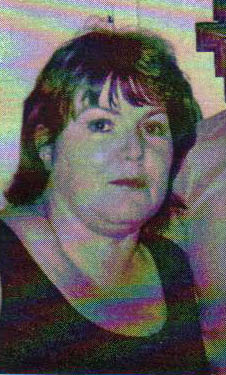CCÉ Northeast Regional Hall of Fame Inductee Mairin Ui Chiede

Mairin Ui Cheide (1958) – Irish singer and speaker – inducted in to the Hall of Fame by the Northeast Region of the North American Province – November 3, 2003
Early Life
Mairin Ui Cheide (Irish singer and speaker) was born in July, 1958 in Leitirmoir, the heart of the rural Conamara Gaeltacht, like other rural places in Ireland except that Irish was spoken by almost everyone except those in authority or the professions. Most of the food came from the surrounding land, with farm neighbors fishing for supplemental income and food. Surrounded there by a strong oral tradition, it seems to Mairin that she has been singing all of her life. When she was growing up, Radio Eireann and the “Ceili House” program in particular were very popular, all in Irish, as was a drama program. Her earliest radio recollection is of an announcement of the death of the American President Kennedy.
Family and Neighbors
Mairin came from a long line of poets and singers. Most people did not have musical instruments and yet knew every dance tune. Indeed, an old neighbor of hers, Paddy Higgins, was one of the best at Port Beil (mouth music). From the age of two, Mairin spent most of her childhood with her maternal grandmother,as it was common for grandchildren to reside with a grandparent, mostly to dispel the loneliness of emigration. Often, but on Friday nights especially, neighbors or other visitors would come to the house, and there would be mouth music, old style step dancing and, of course, singing. In a community of extended families, Mairin knew her great grandmother, who lived with Mairin’s parents. Most homes had grandparents and often great-grandparents in them, and their ways were of the older Irish folk world. Her grandmother never threw water out the door without speaking a warning to any bird or spirit who might be passing by. It was a world Mairin describes as one in which time seemed to stand still.
Her uncle Coilimin Seoige was her mentor; he has thousands of songs and was a tough taskmaster and teacher. A purist, he insured that her singing was as correct as possible; her phrasing and language had to be true to the poet. Her paternal grandfather Michael Kelly was also a great storyteller and had a trove of Irish and some Englis folksongs (learned in his travels with the Irish Army). Often his rendition of these songs would take place as he lay on his bed memorizing verses, such as a never-ending song in English about a boxing challenge, “Morrisey and the Mighty Russian.”
What 60s?
In retrospect, Mairin says, it is no wonder she had no interest in the rock and pop music explosions happening all around her in the late 60s and early 70s. She was steeped in a fast-disappearing tradition of poetry, song, and storytelling. She was fortunate to have had a great Irish literature teacher, Sean Gaora who encouraged her to sing most of the old poetry which she already knew as songs—songs often with many more versions of the poems than appeared in standardized textbook selections. For example, “An Droighnean Donn” (The Brown Thorn Bush) appeared in three versions in her textbook, a song for which she already knew ten versions.
She remembers winning her first prize
at a Comhaltas feis in Dublin. Seamus Mac Mathuna had come to her house to bring her to Dublin, to her first encounter with Seamus and Brid De Brun, who continued to judge her in singing competitions over many years. She doesn’t remember much about the first competition itself, but the journey home was something she’ll always cherish. Seamus Mac Mathuna stopped at the Keanes’ in Caherlistrand, where, after preparing dinner, the three Keane sisters sang for them. Onward home, toward Leitirmoir, going through Spiddal, they called on Tom Phaidin Tom, a great seanos singer who sang many of Raftery’s compositions. Years later, Mairin sang a song that Tom Phaidin Tom had sung that day, “Bridin Bheasach” (Bridget Vessey), receiving 1st place at a women’s competition at Oireactas na Gaeilge. Mairin had already won the coveted Corn Ui Riada (O Riada Cup) at Oireactas na Gaeilge, the highest honor in seanos singing at the Oireactas, when she moved to Boston with her husband and four children in 1986 (now they have five). Since then, she has sung for many an occasion.
Gratitude for the great gift of an oral tradition
When performing, whether before former President Clinton, international dignitaries, or a small gathering of Comhaltas members-she feels she is back in Leitirmoir, humbled by the great gift of an oral tradition that can take its place on any stage. She now realizes she had a dream childhood and experienced a treasure, priceless in nature. Mairin sings her seanos with pride and an awareness that it is her duty to pass it on. She has taught Irish language and singing for many years, maintaining the oral nature of the transmission of the culture as much as possible, and presently teaches a class for children in Dorchester. She hosts a radio program on WNTN completely in Gaeilge every Saturday as part of Larry and Sean Reynolds’ “Sound of Erin” team. And Mairin continues to sing the rich, old Irish liturgical music and the folk music of her childhood in the Gaeltacht.
**************************
Return to Hall of Fame
This page revised by Larry Tormey 9/2/2008.
